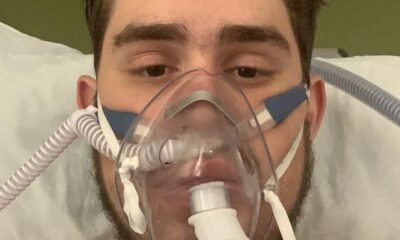
Featured Item

Just how successful is Israel’s vaccine push?
Israel is reporting promising initial results from its COVID-19 vaccine rollout, the fastest in the world.
The first official findings released by the health ministry show that only 0.04% of people caught the virus a week after their second dose, and a mere 0.002% needed hospital treatment.
Clalit, the country’s largest health service organisation, has also released its preliminary data. It compared 200 000 people aged 60 and over who’ve been vaccinated with 200 000 similar unvaccinated older adults. It found that the rate of those who tested positive dropped 33% among the vaccinated 14 days after they received it. No decline was seen in the unvaccinated.
Maccabi, another healthcare organisation, saw an even larger drop. Infections decreased 60% among 430 000 people 13 to 21 days after they received the vaccine. The data also suggested the vaccine was 92% effective, close to the 95% efficacy claimed by Pfizer.
Israeli researchers are conducting more in-depth analysis, and point out that real-world effectiveness of vaccines is often lower than the efficacy seen in clinical trials due to a number of factors.
But experts warn that this data has yet to be published in a peer-reviewed journal so it should be viewed with some caution.
There are also various factors that could be influencing the results. The current lockdown and behaviour such as travelling and gathering less, wearing masks, and greater physical distancing might be decreasing infections.
The first people to receive the vaccine were mostly from vulnerable populations, so they are more likely to take precautions which could also skew the data.
In spite of the encouraging news, the death toll from COVID-19 continues to climb. Of the 4 816 fatalities at the time of writing, 30% occurred in January when the vaccination rollout was already in full swing. The government blames this on the more transmissible British variant of the virus, especially among children. According to Clalit, when the vaccination campaign started in late December, the new variant caused 30% to 40% of infections, whereas now that figure has doubled.
As for the South African strain, there are currently 80 detected cases in Israel, and there is concern that the vaccine isn’t as effective against this variant. A number of Israelis who previously had COVID-19 have been re-infected with the South African strain, with the most recent case identified two days ago.
Compounding the situation is the flagrant disregard by the ultra-Orthodox community, that comprises just less than 13% of the population, for lockdown rules. Since the start of the pandemic, one in five ultra-Orthodox has tested positive.
Many in the community doubt the safety of the vaccine or believe the country’s citizens are being used as guinea pigs to test its efficacy. Prominent rabbis have also said that communal prayer and study needs to overwrite lockdown concerns.
Last Sunday, 31 January, thousands of ultra-Orthodox mourners, many without masks, crowded together to attend two funerals of famous rabbis who died from coronavirus. Prime Minister Benjamin Netanyahu has been criticised for not cracking down harshly enough on the community for political reasons – he needs their votes in the upcoming 23 March election.
Residents of Tel Aviv spoke to the SA Jewish Report, complaining that the actions of the ultra-Orthodox were forcing the whole country to go repeatedly into lockdown, and it wasn’t fair. It’s no surprise thus that the latest word from the government is that the current – third – nationwide lockdown may not be Israel’s last.
Many Israelis want cities and towns to once again be divided into red, orange, yellow, and green zones and scales of restrictions to be put in place accordingly. This would mean those who obey the restrictions wouldn’t have to pay the price of those who don’t.
In recent days, there’s also growing concern in some quarters in Israel that because the mass vaccination campaign is running in parallel with an active coronavirus outbreak, it could lead to an “evolutionary pressure” on the virus in which it would ultimately become immune to vaccination. Doctors are suggesting that in future, people will need to take an annual anti-COVID-19 jab, much in the same way the annual flu injection is taken.
But for now, the race to innoculate everyone is on. Among the first to be injected were people aged 60 or older. More than two-thirds of this age group have already received the required two doses. Up to 200 000 people are being injected each day, and the vaccine is now available to anyone over the age of 35. High-school students aged 16 to 18 are also included in the hope that they will be able to sit for exams. It seems Netanyahu is on track to fulfil his promise of innoculating five million of the country’s nine million citizens by the end of March.
To date, just more than one in three Israelis has been inoculated – about 1.7 million of them twice. Because this is a far higher fraction than anywhere else in the world, it makes the country a test case for the international vaccine push.










